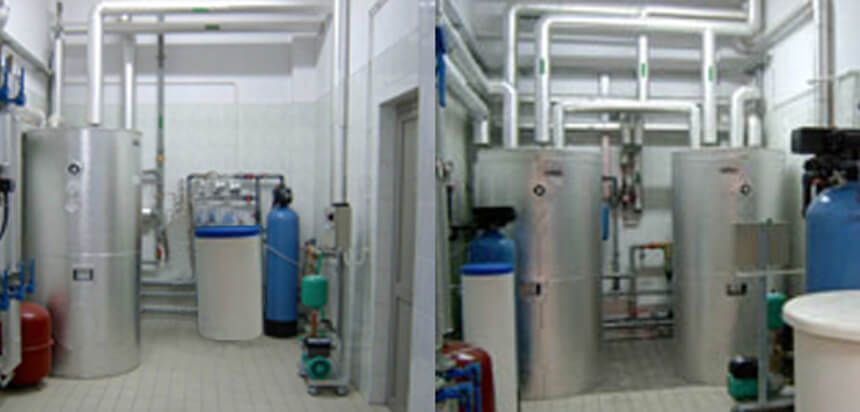
We tend to forget about our water heaters until something goes wrong and we have to do something about it. As long as we have access to hot water, we never bother to check them. However, regularly-scheduled maintenance and timely repairs can go a long way in optimizing the performance of your water heater. Whenever a problem arises, you should immediately assess the damage and determine your best option moving forward.
Identifying Water Heater Problems
You can easily remedy many of the problems that you encounter with your water heater without having to hire a professional. Some of the more serious issues, however, should be left to the pros. We want to help guide you through the process of diagnosing the problem and then determining the repair services that will benefit you the most.
The Hot Water Is Too Hot
If your water heater is producing abnormally hot water, then you can usually fix the issue by turning up the temperature on the water tank’s thermostat. You want to be careful that you’re not turning up the thermostat too high, as this can create a safety hazard. Higher water temperatures are among the more common and easily repairable issues that you’ll encounter.
No Hot Water
It’s something that we all dread and want to avoid at all costs. If you have a gas-powered water heater, then the problem likely stems from a pilot light that was blown out. Some other causes are a defective thermostat or a faulty control valve. You may also need to repair or replace the heating element in your water heater which is an easy job for a professional plumber.
Foul-Smelling Water
Water that emits an unpleasant odor is usually an indication that your water supply has become infected with bacteria. It’s also not very difficult to locate the source of the smell. We recommend that you flush all the water from the tank that stores your hot water and fill it up with a solution of water and hydrogen peroxide. Let the solution sit inside your tank for about two hours and then you can flush it with clear water again. If the smell persists, then it’s time to call a professional plumber. The smell can be completely unrelated to your hot water heater (smelly water can also indicate that your sewer line is backed up).
A Noisy Tank
If your water tank is making a lot of noise during the normal heating process, then there could be several things going on. The most common cause of a noisy water tank is when a layer of sediment forms along the bottom of it. The heating element is burning the sediment, hence all the noise. If this is happening to you, then all you need to do is drain all the water from your tank. It’s fairly to do and you should make an effort to flush out your tank at least once a year. Another cause of a noisy water tank is when the heating element is about to give out. In this situation, you will need to hire a professional to replace it.
Leaky Tanks
Your water tank will begin to leak at some point, and once this happens, you will likely need to replace it. Even if the leak is small and seemingly repairable, you should strongly weigh your options. When you do spot a leak, you should repair it immediately. Most water tanks can store up to 60 gallons of water, and all of it can end up seeping on your basement floor. This is something you want to avoid because even a minor leak can cause a significant amount of water damage to your home.
Calling a Professional
A little troubleshooting can go a long way in alleviating any problems that you encounter with your water heater. That being said, you should always exercise caution when it comes to fixing an issue without hiring any professional help. If you’re unsure of anything, we recommend that you give us a call at your earliest convenience. One of our staff members can explain what you need to watch out for with some of the more common water heater problems.
